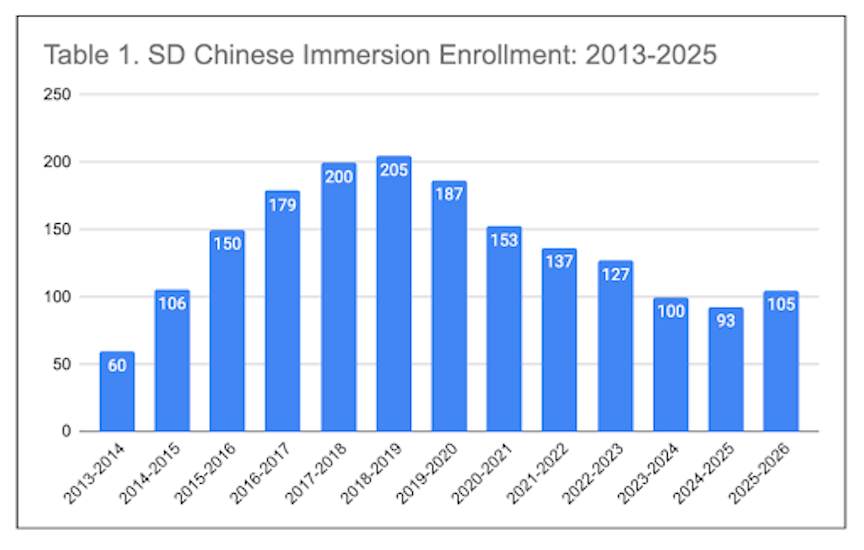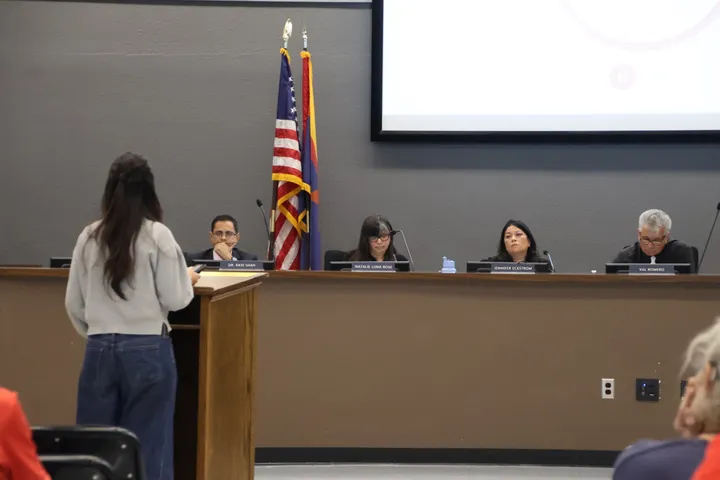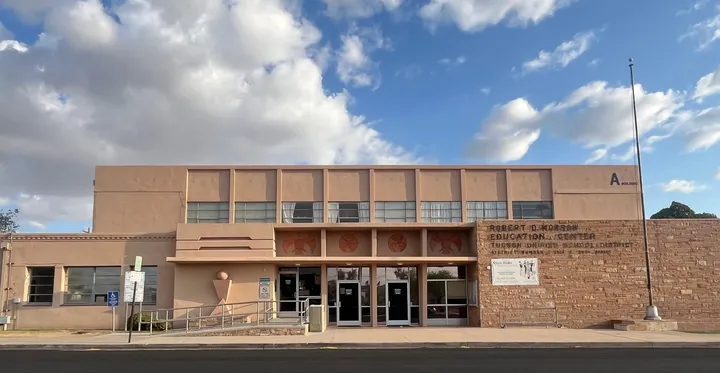Catalina Foothills to phase out Chinese immersion program despite pushback
The Catalina Foothills Unified School District board voted to phase out its Mandarin immersion program due to declining enrollment and costs.

The Catalina Foothills Unified School District Governing Board voted unanimously last Tuesday to phase out its Mandarin Chinese immersion program over time, despite strong opposition from parents, students and community members.
District officials say enrollment in the program is down and it’s too costly to continue.
The phase-out plan allows currently enrolled students to complete the program but bars new enrollment.
The Chinese immersion program was originally designed to host 300 students with 12 full-time employees. It currently operates with 105 students and 3.5 full-time employees, a 30-to-1 student-to-teacher ratio.
Dozens of parents attended the meeting to protest the board’s decision, citing the program’s positive impact on the community and the potential consequences of cutting it.
“A few years ago, while working at our restaurant, I met a young boy who walked up to the counter and greeted me in Mandarin. He confidently ordered his meal completely in Mandarin and to my surprise, he wasn’t a native speaker,” said small-business owner Lily Wang, a mother of three children who attend Sunrise Drive Elementary School. “When I asked him where he learned it from, he proudly said, ‘I’m in the Chinese immersion program at Sunrise.’”
Wang, like many other families at the meeting, said the encounter led her to transfer her children into the district so they could enroll at Sunrise. All three now participate in the school’s Mandarin program.
“Programs like this shape not only how children learn, but how they see the world,” Wang said. “As someone who grew up in a bilingual environment myself, I know the lifelong value of this kind of education.”

The program, established in 2013, has seen a steady decline in enrollment since the COVID-19 pandemic. Teachers from the program will be reassigned to traditional classrooms once it ends.
Another Sunrise parent, Connie Chan, said she first learned about the phase-out plan from The Desert Leaf, a local Catalina Foothills magazine, before hearing about it from the district.
“The process has already undermined public trust,” Chan said. “I’ve spoken to families who never received a call back when they asked about enrollment or were discouraged from applying because the program seemed uncertain.”
Chan urged the board to delay the vote and hold a town hall to allow for further community input. She said the decision contradicts CFSD policy on curriculum development and state laws requiring transparency and public review.
The board acknowledged the difficulty of ending the program but stood by its financial reasoning. Members denied any political or government pressure to shut it down, saying the decision was based solely on budget constraints.
Still, some attendees warned the move could drive families away.
“When Horseshoe Trail Elementary in Cave Creek ended its immersion program, 150 parents protested, and many families transferred to Deer Valley District,” Chan said.
Parent Alexandra Riley, who has two children in the program, pointed to inconsistencies in how language programs are evaluated. While district officials said the Chinese immersion program must maintain a 25-to-1 student-to-teacher ratio, other programs have lower thresholds — including Ventana Vista’s Spanish program at 15-to-1 and Canyon View’s program at 16-to-1.
Na Zuo, an associate professor of economics at the University of Arizona and a parent of a kindergartener in the program, questioned the financial analysis used to justify the phase-out.
“As an economist, I know that benefit-cost analysis is essential for public decision-making. Yet for this important decision, we have not seen a thorough program evaluation that weighs the true benefit against the real cost,” Zuo said. “I don’t think we need a professor of economics to really help understand that this program actually is 20% more efficient running right now than designed.”
Parents said they plan to continue advocating for the program’s future.
Ruby Wray is a journalism and creative writing major at the University of Arizona and Tucson Spotlight intern. Contact her at rubywray@arizona.edu.
Tucson Spotlight is a community-based newsroom that provides paid opportunities for students and rising journalists in Southern Arizona. Please consider supporting our work with a tax-deductible donation.



